No Justice in Kafka’s America
The draconian legal mechanisms that condemn Muslim Americans who speak out publicly about the outrages we commit in the Middle East have left many wasting away in supermax prisons.The tyranny we impose on those held in Guantanamo, Bagram and the secret CIA “black sites” we impose on ourselves.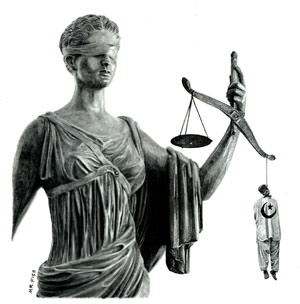
In Franz Kafka’s short story “Before the Law” a tireless supplicant spends his life praying for admittance into the courts of justice. He sits outside the law court for days, months and years. He makes many attempts to be admitted. He sacrifices everything he owns to sway or bribe the stern doorkeeper. He ages, grows feeble and finally childish. He is told as he nears death that the entrance was constructed solely for him and it will now be closed.
Justice has become as unattainable for Muslim activists in the United States as it was for Kafka’s frustrated petitioner. The draconian legal mechanisms that condemn Muslim Americans who speak out publicly about the outrages we commit in the Middle East have left many, including Syed Fahad Hashmi, wasting away in supermax prisons. These citizens posed no security threat. But they dared to speak a truth about the sordid conduct of our nation that the state found unpalatable. And in the bipartisan war on terror, waged by Republicans and Democrats, this ugly truth in America is branded seditious.
The best the U.S. government could offer as evidence of Fahad’s crimes was that an acquaintance who stayed in his apartment with him while he was a graduate student in London had raincoats, ponchos and waterproof socks in luggage at the apartment and that the acquaintance eventually delivered these to al-Qaida. But I doubt the government is overly concerned with a suitcase full of waterproof socks taken to Pakistan. The reason Fahad Hashmi was targeted was because, like the Palestinian activist Dr. Sami Al-Arian, he was fearless and zealous in his defense of those being bombed, shot, terrorized and killed throughout the Muslim world while he was a student at Brooklyn College. Fahad was deeply religious, and some of his views, including his praise of the Afghan resistance, were to me unpalatable, but he had a right to express these sentiments. More important, he had a right to expect freedom from persecution and imprisonment because of his opinions. Facing the possibility of a 70-year sentence in prison and having already spent four years in jail, much of it in solitary confinement, he accepted a plea bargain on one count of conspiracy to provide material support to terrorism.
It has been a year since his 15-year sentence was pronounced in a New York courtroom. He is now held in Guantanamo-like conditions in the supermax ADX [Administrative Maximum] facility in Florence, Colo. He is isolated in a small cell for 22 to 23 hours a day. He has only extremely limited contact with his mother, father and brother, often going weeks without any communication. Between his transfer to Florence last August and this March he was permitted only one phone call. The rule of law in America, especially if you are Muslim, fits Kafka’s grim parody. The tyranny we impose on those held in Guantanamo, Bagram and the secret CIA “black sites” we impose on ourselves. This is and always has been the disease of empire. Empire imports the crude and brutal tools of control and violence back to the homeland. It creates internal as well as external colonies.
We no longer have freedom; there is only the appearance of freedom. We are consumed by an endless and vague war on terror in which the perfidiousness of our enemy, whose number, location and nature are never clearly defined, justifies the shredding of constitutional rights, torture, kidnapping, detentions without charges or trials and an occult-like battle against an absolute evil. And if you think the state intends to limit itself to the persecution of Muslims, especially once there is an increase in domestic unrest and instability, you know little about human history.
I spoke Saturday night to Fahad Hashmi’s father, Syed Anwar Hashmi. The elder Hashmi came to the United States from Pakistan when Fahad was 3 and his other son, Faisal, was 4. He worked for more than two decades as an accountant for the city of New York. He came, as most immigrants have, for his children. He believed in America, in its fairness, its chances for opportunity, its freedoms. And then it all crumbled when the state proved as capricious and cruel as the Pakistani dictatorship he had left behind. On the day of his son’s arrest, he says, “my American dream became an American nightmare.”
Three law enforcement officials appeared at his home in Flushing, Queens, on June 6, 2006, to inform him that Fahad, who had been in London completing a master’s degree in international relations, had been arrested at Heathrow Airport on terrorism charges. Fahad, after fighting the order for 11 months, was the first American citizen extradited under the post-9/11 laws. He was taken in May 2007 to the Metropolitan Correctional Center in lower Manhattan and placed in solitary confinement.
“I came to this country from Pakistan nearly 30 years ago, in 1982 with my wife and two young boys,” Fahad’s father said. “Coming from a Third World country, we were full of hope and looked towards America for liberty and opportunity. I had an American dream to work hard and give my sons good educations. I worked as an assistant accountant for the city of New York, six days a week, nine hours a day, including overtime, to support my family and to send both my kids through college. We all became U.S. citizens, and my sons fulfilled my dreams by completing their undergraduate and postgraduate education. I was very proud of them.”“In high school and then as a student at Brooklyn College, Fahad became a political activist, concerned about the plight of Muslims around the world and the civil liberties of Muslims in America,” he went on. “Growing up here in America, Fahad did not fear expressing his views. But I was scared for him and urged him not to speak out. He would remind me that everything he did was under the law. But having grown up in a Third World country, I had seen that it did not always work this way, and so I worried. He was monitored by law enforcement and quoted in Time magazine. But he kept speaking out. And then, with his arrest, my fears came true.”
Judge Loretta Preska denied Fahad bail partly on the grounds that he had no ties to family and community. His family and friends, who sat crowded together in the courtroom, listened in stunned silence. And then, after five months, Hashmi, already isolated in solitary confinement, was suddenly put under “special administrative measures,” known as SAMs. SAMs are the legal weapon of choice used by the state when it seeks to isolate and break prisoners. They were bequeathed to us by the Clinton administration, which justified SAMs as a way to prevent Mafia or other gang leaders from ordering hits from inside prison. The use of SAMs expanded widely after the attacks of 2001. They are frequently used to isolate terrorism case detainees before trial. SAMs, which were renewed by Barack Obama in October, severely restrict a prisoner’s communication with the outside world. They end calls, letters and visits with anyone except attorneys and sharply limit contact with family members. Fahad, once in this legal straitjacket, was not permitted to see much of the evidence against him under a legal provision called the Classified Information Procedures Act, or CIPA. CIPA, begun under the Reagan administration, allows evidence in a trial to be classified and withheld from those being prosecuted.
The weekly visits Hashmi’s family made to the jail in Manhattan were canceled. A single family member was permitted to visit only once every two weeks, and on a number of occasions the family member was inexplicably denied admittance. During the last five months of the trial Hashmi’s family was barred from visiting him. Anyone who has contact with a prisoner under SAMs is prohibited by law from disclosing any information learned from the detainee. This requirement, in a twist Kafka would have relished, makes it illegal for those who have contact with an inmate under SAMs — including attorneys — to speak about his or her physical and psychological condition.
Once the SAMs were imposed, “He wrote us occasionally — one letter on no more than three pages at a time — but he was allowed no correspondence or contact with anyone else,” his father said of his son. “In addition, because of Fahad’s SAMs, we were not allowed to discuss anything we heard from him, including his health or any details of his detention or what he was experiencing, with anyone else. It was like being suffocated.”
In a pretrial motion, Hashmi’s lawyer presented the extensive medical and scholarly research that demonstrates the severe impact solitary confinement has on human beings, often leaving them incapable of defending themselves during their trial. It did not sway the judge. Fahad lived in a universe, before ever being sentenced, where he had no fresh air and was subjected to 23-hour lockdown and constant electronic surveillance including when he showered or relieved himself. He was barred from group prayer. He exercised alone in a solitary cage. He was denied access to television or a radio. His newspapers were cut up by censors. And this was all before trial.
“These years have brought deep disillusionment for my family in the American justice system,” his father said. “Fahad was restricted in reviewing much of the evidence against him, and even his attorney could not discuss much of the evidence with him. Secret evidence is something we knew from back home. The judge accepted the prosecutor’s motion to introduce Fahad’s political activities and speeches into the trial to demonstrate his mind-set. Where was the First Amendment to protect Fahad’s speech? Two days before the trial was set to begin, Judge Preska agreed to the prosecutor’s motion to keep the jury anonymous and kept under extra security — even though this could have frightened the jury and affected how they viewed Fahad.” “On the day before trial, nearly four years since he had been arrested, I had just returned from dropping off clothes for Fahad to wear to court when I received a call from my attorney,” Fahad’s father said. “The government had offered a deal to drop three of the four charges against Fahad, if he accepted one charge which carried a 15-year sentence and Fahad had agreed to this plea bargain. I was shocked by my son’s decision on the eve of his trial, but after I thought more, I wondered how anyone could have decided differently in his situation. Fahad had been in solitary confinement, under SAMs, for nearly three years. The judge had in every instance sided with the government in pretrial motions. If convicted, Fahad faced a possible 70-year sentence. Under those circumstances, Fahad’s decision to accept one charge was no longer surprising. He has been in for five years this June.”
“The U.S. government is concerned about human rights in China and Iran,” he went on. “I wonder about Fahad’s rights, and how they have been blatantly violated in this great land. It seems like ‘innocent until proven guilty’ is only a saying. My son was treated as guilty until proven innocent.”“The Muslim community supported my son by offering prayers, particularly in the month of Ramadan,” he said. “But they were initially afraid to raise their voices against injustice. This reminds me of the fear the Chinese have under Communist rule, or Iranians under Ahmadinejad. As a citizen, I now have developed fear of my own government.”
“For one charge for luggage storing socks, ponchos and raincoats in his apartment, he is serving a 15-year sentence in the harshest federal prison in the country, still in solitary confinement, still under SAMs,” his father said. “The cooperating witness in the case, the one who brought and delivered the luggage, is now free and able to enjoy his life and family.”
The state, by making us afraid, is able to justify the disease of permanent war and the silencing of those who dare to dissent. The terrible suffering we have unleashed throughout the Middle East is rendered invisible if there is no one to decry it and document it. Communities and families, not only in Iraq, Afghanistan and Pakistan but at home, have been plunged into needless grief and suffering because of the atrocities committed in our name. The despair and bewilderment of Fahad’s father are a reflection of the wider despair and bewilderment that have gripped the lives of hundreds of thousands of Muslims who have been forced to confront the dark heart of empire. In their pain we stand condemned.
“There are many things I’d like to be able to say about the visit and my son’s continuing detention, but because of Fahad’s SAMs, I am forbidden,” his father said. “Everything has changed for my family. Our first grandchild was born 19 days after Fahad’s arrest, our second two years later. But now everything has a cloud over it — graduations, birthdays, holidays, going to the store or the park or visiting family or running errands, and particularly the Eid day. In other words, we have lost our happiness.”
Chris Hedges is a weekly Truthdig columnist and a fellow at The Nation Institute. His newest book is “The World As It Is: Dispatches on the Myth of Human Progress.”
Your support is crucial…With an uncertain future and a new administration casting doubt on press freedoms, the danger is clear: The truth is at risk.
Now is the time to give. Your tax-deductible support allows us to dig deeper, delivering fearless investigative reporting and analysis that exposes what’s really happening — without compromise.
Stand with our courageous journalists. Donate today to protect a free press, uphold democracy and unearth untold stories.

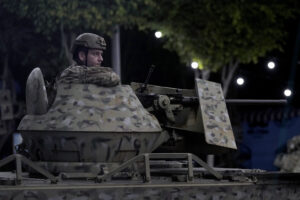
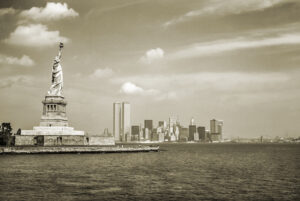
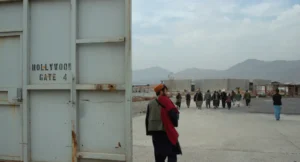
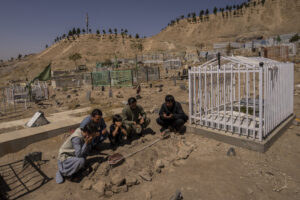




You need to be a supporter to comment.